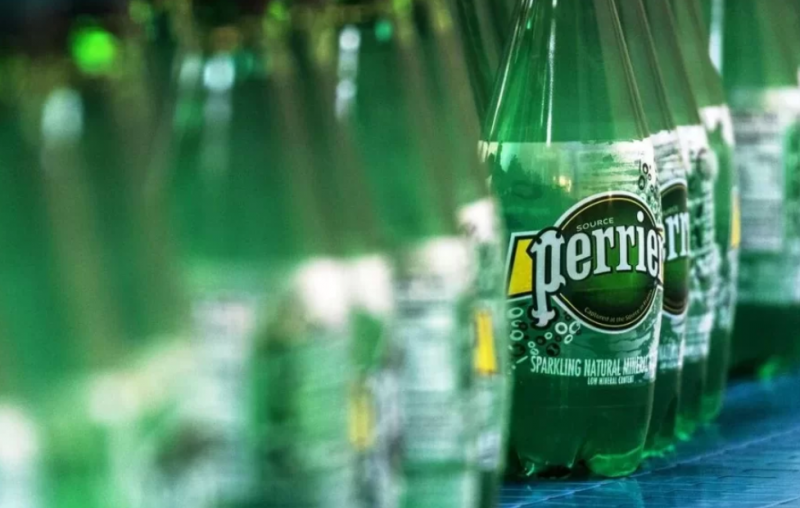Nestlé has destroyed part of its production of bottled water "Perrier" after the presence of bacteria "of Brazilian origin" was detected in one of its wells in the Gard region of southern France. The use of this well has been suspended until further notice, as confirmed by Nestlé Waters, a subsidiary of the group, on Wednesday.
In a decision dated April 19, the Gard governor informed the company that there should be an "immediate suspension" of use for one of its water sources in Vergèze. The decision stated that this source "experienced contamination from March 10, 2024, over several days with bacteria identified as contamination of Brazilian origin (coliforms, E. coli) as well as the bacteria Pseudomonas aeruginosa."
He added that "it is impossible to rule out the contamination of bottled water (final products) from this well (...) which could pose a risk to consumer health." Nestlé Waters indicated to the AFP on Wednesday that "hundreds of large packs" typically delivered to stores were destroyed "as a precaution."
The company explained that a "slight microbiological deviation" occurred following "heavy rainfall" in the Gard area associated with a Mediterranean-type event, namely Storm Monica, which struck southeastern France in mid-March. In response to a question from AFP, the water company did not specify the nature of the contamination but confirmed that "all bottles available on the market can be consumed safely."
Nestlé Waters did not disclose the exact number of bottles destroyed, but reported that some types of "Perrier" products will be available "in reduced quantities." The suspended well is located in Vergèze, where the source of "Perrier" was established in 1903. The well is under "intensive monitoring (...) at the request of authorities." Nestlé confirmed that operations will "resume in due course under the supervision of the authorities."
The mineral water production company, which also owns brands such as "Vittel," "Contrex," and "Évian" in France, has faced scrutiny since late January when it admitted to using prohibited treatments with ultraviolet rays and activated carbon filters in some of its mineral waters to maintain "food safety."




